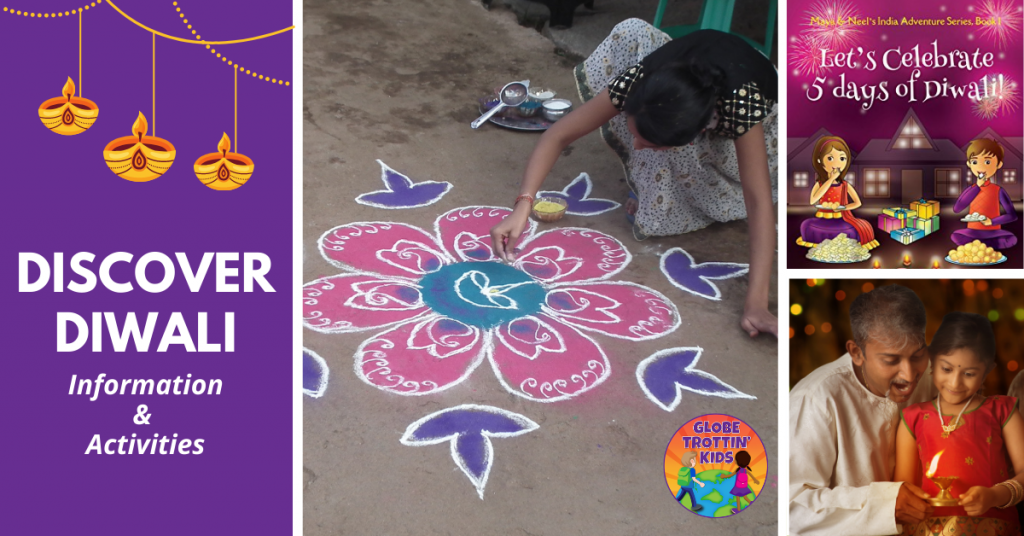Deepawali nav varsha - Happy New Year - Shubh Deepavali
The customs of wearing new garments and exchanging gifts and greetings have come to be associated with Diwali, probably because of this New Year celebrations. Accordingly most of the traditions of a New Year celebration are all present. The occasion sees the spring-cleaning and white-washing of houses; decorative designs or rangolis are painted on floors and walls to greet the new year.
Fresh flowers, exchanges of gifts, new clothes, meeting with friends and family, and feasting are part of the colorful festival. Each region of India celebrates Diwali in its own way, but the lighting of many small earthenware oil lamps is common throughout the country, setting homes and gardens aglow with twinkling lights. The lamps are symbolic of the victory of the light of goodness and knowledge over the darkness of evil and ignorance. The lighting of the lamps is also a way for people to show thanks for the good things in their lives.
Diwali, short for Deepawali, is one of the most popular celebrations in India. The word translates to “row of lights” in Sanskrit and celebrates the victory of good over evil, light over darkness.
The multi-day Festival of Lights includes fireworks, food, gifts, colored sand, and special clay lamps.

Disclosure: This post contains affiliate links. By clicking through and making a purchase, we receive a small commission at no extra charge to you. All proceeds help support our free global education website. Thank you!
The Five Days of Diwali
The Diwali festival takes place over a five-day period, but the main celebrations happen on the third day (coinciding with the new moon between mid-October and mid-November).
Mark your calendar: November 4, 2021; October 24, 2022; October 12, 2023; November 1, 2024; October 21, 2025.
Day 1 People go shopping, clean their home, and decorate with fresh flowers.
Day 2 Homes are decorated with diyas (small oil lamps) and rangoli are created on the floor at the entrance to the home. The decorative patterns are made using colored rice, flour, powder or sand. Sweets are prepared.
Day 3 This is the main day of the festival. Families gather for Lakshmi Puja – a prayer to Goddess Lakshmi (the goddess of wealth). They pray to be blessed with good fortune for the upcoming year. Offerings may include fruit, rice pudding, flowers, or other gifts. Fireworks and a large feast end the night.
Day 4 This is the first day of the new year. Friends and family visit with gifts and sweets.
Day 5 This day celebrates the relationship between a brother and sister. Siblings spend time together, pray, exchange gifts, and enjoy a meal.
 Reviewed by Bloggers
on
11:15 AM
Rating:
Reviewed by Bloggers
on
11:15 AM
Rating:





No comments: